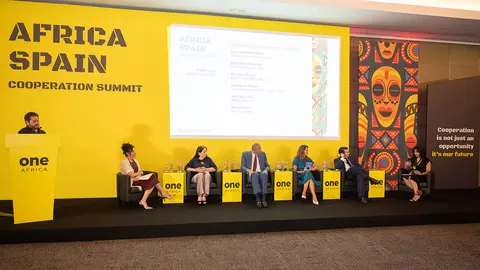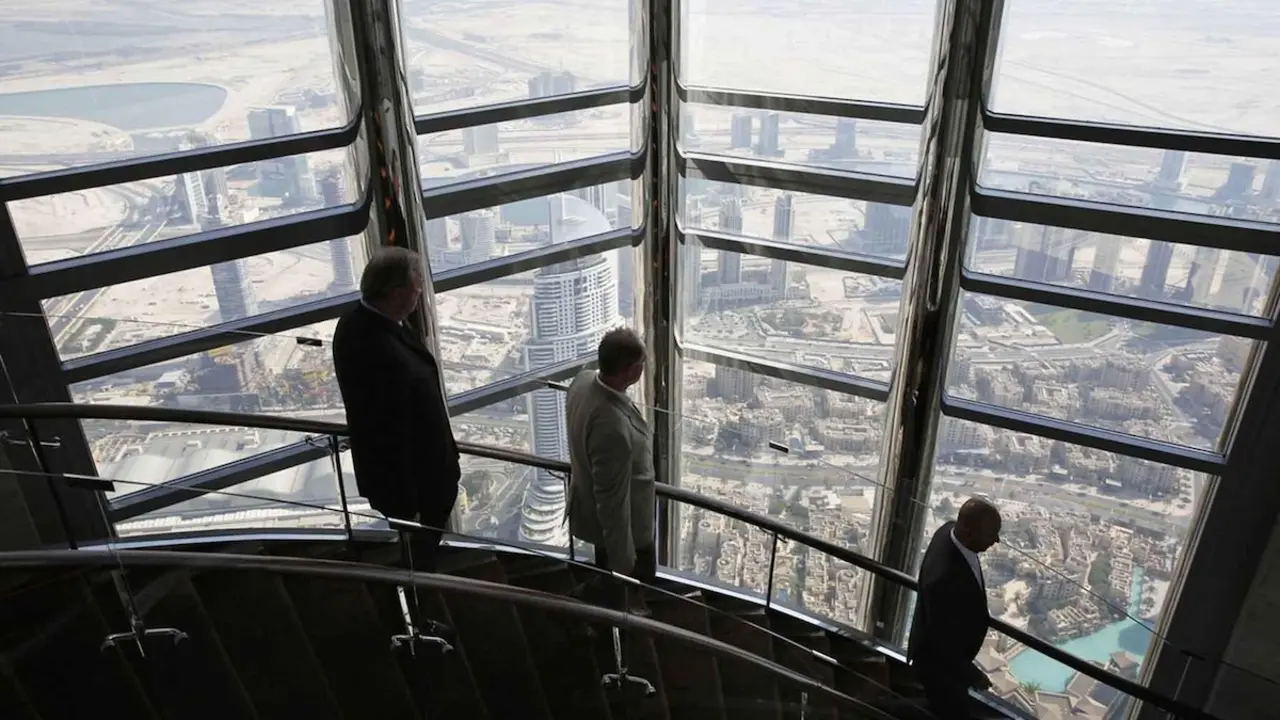Creating the environment for investors is key to the success of infrastructure plans in Africa

The round table dedicated to infrastructure projects at the Africa Spain Cooperation Summit was moderated by Jon Marks, president of Cross-border information, and included two Spanish speakers: María Peña Mateos, CEO of ICEX Spain Trade and Investment, and Fernando Bernad, partner at Cuatrecasas.
María Peña pointed out that "ICEX Spain Trade is part of the State Secretariat for Trade and we are in charge of accompanying Spanish companies in their internationalisation process, and in promoting Spain as an investment platform. We are not a financial institution, but we provide services of a different nature, such as information on institutional support, logistics, promotional activities and services that can make our companies more competitive.

In her opening remarks, the head of ICEX explained that "when we think of Africa, our main concern is the lack of transparency in information, a gap that prevents business opportunities for companies and forms an intangible barrier. That is why we try to cover this with institutional support and information, to make the market more transparent".
Fernando Bernad, from Cuatrecasas, pointed out that his firm has worked on various infrastructure projects in Africa, such as several desalination plants and other renewable energy facilities in Algeria, Morocco and Tunisia.
From his experience in all these projects, Bernad pointed out that "providing financing for long-term infrastructure is very complicated, and not only in Africa, but also in European jurisdictions. It's not a question of development, it's just that it's complicated in itself.

As for the possibilities that the African continent offers Spanish companies, Peña distinguished between the northern and southern countries: "Africa is very large; most of the activities of the Spanish private sector are carried out in the north, especially in Morocco. It is a country very well known by Spanish companies, with which we have a very rich and complex relationship. Spanish companies are present in Morocco in all sectors and at all levels: IBEX, SMEs, technology companies. Most of them interact in the value chain: automotive, energy, electronics, educational services...".
The head of ICEX pointed out that "with the rest of the continent, the approach is different, with a different perception of risk. You have to know the regulations, know who has the power, how things work... Nothing is what it seems at first glance. And when you don't have international experience, you can make mistakes, because it's not as easy and straightforward as it can be in other regions. In Africa, you need money and time, because the return on investment is not quick".

Bernad pointed out that "in some minor projects, the difficulty does not lie in the project itself, the problem is that other infrastructures are needed, such as roads that connect to the port. In the case of desalination plants, if a 200,000 cubic metre plant is built, it is better that the distribution of the water is well planned and that it reaches all the neighbourhoods of the country, because it could happen that the water network ends up bursting. There are secondary infrastructures that need to be renovated, and this is a crucial factor. And then there are other issues, such as foreign exchange risk, or access to local insurance companies.
In the case of Spanish companies, the fact that they have extensive experience in the construction of infrastructures in Latin America is a very important factor that can facilitate their access to this type of projects in Africa. According to Peña, "Spanish companies are internationally recognised for their flexibility and capacity to adapt to public-private financing models. And this is very important. The choice of the type of project depends on the trust you have in public institutions: when it is public-private, you need a more solid commitment, robust institutions that will remain during the negotiation and after the signing of the contract, and they have to be independent of the government that has negotiated the contract"

For Fernando Bernad, "Spanish companies know the Latin American market perfectly well, and that is an advantage when working in developing countries. Moreover, when Spanish companies establish themselves in a country, they stay, they don't do the project and they leave".
The afternoon session concluded with a panel discussion on governance and urban transitions in Africa, moderated by David Garay, CEO of Indegate.
Participants included Bruno Nabagné Kone, Minister of Housing and Urban Development of Ivory Coast; Cecilio Cerdán, Director of International Relations of Madrid City Council; Ramón Riera, President of FIABCI; Serge Habib M'Bengue, CEO of SHM; and Siriki Sangare, President of Opes Holding.









